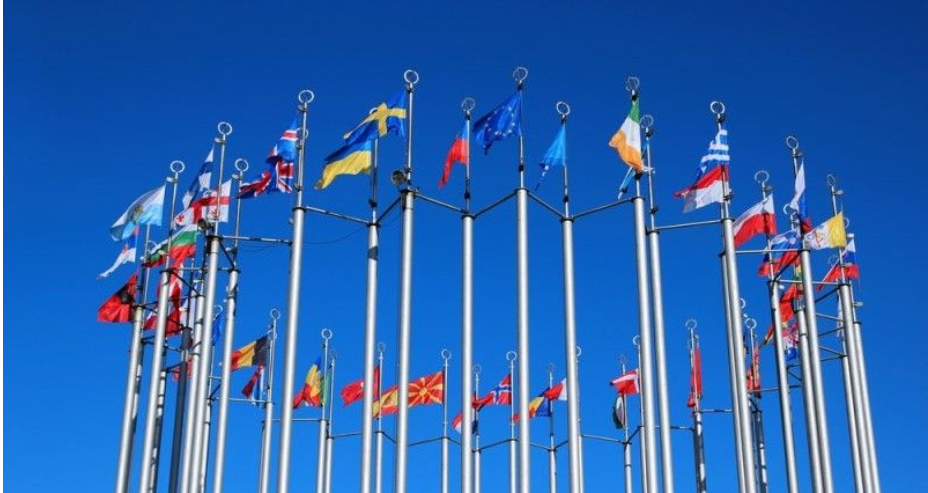Cheføkonomen i den italienske bank, UniCredit, Erik F. Nielsen, ser meget positive politiske og økonomiske tendenser i europæisk politik i de tre store lande, men især i Tyskland, hvor en ny tre-parti regering tiltræder på onsdag. Der kommer en stribe reformer, der vil sætte skub i en grøn modernisering, og som vil skabe langt flere offentlige og private ivesteringer med kreative modeller. Det vil påvirke resten af Europa. Samtidig vil Tyskland fortsat føre en sund finanspolitik. Det kan blive et brud med efterkrigstidens finanspolitik, og der kan drages sammenligning med Joe Bidens finanspolitik. Erik F. Nielsen, mener, at den nye tyske Scholz-regeringen vil blive mere aktiv i europæisk politik, fordi Scholz forstår, hvad der skal til for at skabe en ny udvikling i en grøn verden. Men Erik F. Nielsen ser også positive tegn i både Frankrig og Italien. Europa er på vej fremad trods den gamle eurokrise og den aktuelle coronakrise.
European politics: The prospect of a watershed moment unfolding
This past week saw a host of important political events throughout Europe, including the farewell to Angela Merkel in Berlin ahead of this coming week’s inauguration of the Scholz-led Ampel-coalition, as well as the emergence of two additional candidates for the French presidential election next year, namely the extreme-right Eric Zemmour, who announced his candidacy in a tragic-comic (yet possibly effective) 10 minute video, and Valerie Pecresse, who clinched the center-right’s (Les Republicains) nomination.
Pecresse is a center candidate who resembles Macron on several policies. Indeed, her clearest attack on him so far has been a claim that he zigzags. She has described herself as “two thirds Angela Merkel and one third Margaret Thatcher”.
If she manages to get through to the second round on April 24, she would be a serious contender against the favorite (still undeclared) Macron.
Also of importance, this past week saw the sudden departure from politics of former Wunderkind of the right, Austrian
Sebastian Kurz (who, in his departure note, felt compelled to clarify that he is neither a saint nor a criminal) and the (second) arrival of Magdalena Andersson as Swedish prime minister. Andersson, a Social Democrat, opened her tenure with the withdrawal of Sweden’s long-held opposition to the proposed EU-wide minimum wage and with a statement of strong support for Belarusian opposition leader Svetlana Tikhanovskaya, thereby echoing the incoming German government. Her government’s program will focus on an acceleration of green transformation and on domestic social reforms.
I’ll focus on the outlook for the next German government and the prospect of Mario Draghi becoming president of Italy next year, as opposed to staying on as prime minister for another 12-18 months.
First Germany and what the new government is likely to mean for Europe:
I have already written quite a lot about Angela Merkel and her 16 years in power, but I can’t let her go without tipping my hat, one more time, for her appeal in her farewell speech that “everywhere where scientific facts are denied, conspiracy theories and smear campaigns are spread, resistance must be loud”.
On Wednesday, after the Green party has formally approved the coalition agreement in a vote tomorrow (SPD’s is done and FDP approves today), she’ll be gone and Germany will be led by Olaf Scholz and his Ampel-coalition.
The new German government will bring in significant reforms in Germany, if less headline-grabbing and straight-forward then desirable – and it will, very likely, also facilitate reforms in Europe, assuming France stays away from the extremist candidates in next year’s elections, as indicated by opinion polls, and particularly if Macron is re-elected, and assuming the Italian political fabric remains anchored in pro-EU policies.
The FT’s Martin Sandbu argued this past week that “what is happening in Germany … may be nothing less than the end of 20th-century politics”, with which he means a break not only from the “general Washington consensus type of economic thinking that has dominated international discussion (including in Europe) [for the past decades, but also from the] old leftwing views of state control”.
Instead, Sandbu argues, there is a clear resemblance “between the new German government’s approach and the economic theory set out by US President Joe Biden’s administration: a progressive supply-side economics.
In both Washington and Berlin, smart government interventions in the form of strong investment and active regulation are seen as instruments to make the private sector stronger — not as substitutes for it (as per the old left)”.
While one may wonder if the US stays this course after next year’s mid-term elections and after the 2024 presidential elections, I have little doubt about this new direction of policies in Germany and in Europe – although the extent may turn out a bit less impressive than suggested by Sandbu’s big call. After all, and in spite of these past 18 months, Scholz is a fiscal conservative at his core.
Importantly, the incoming German government seems to have a better and more constructive understanding of Europe and what it takes for a currency union to remain sustainable and deliver all the benefits to the citizens that it’s meant to do, than the outgoing coalition, let alone the previous one with a then virtually all-powerful Wolfgang Schäuble as finance minister.
I never had any doubt about Merkel’s commitment to Europe, but I have at times doubted whether she fully understands what it takes for it to work – or, at least, whether she was willing to spend the necessary political capital to drive the European agenda, particularly during the years with Schäuble as finance minister (with the critically important exception of her rescue of Greece, and indeed of the entire European project, when – stunningly – Schäuble advocated a Greek exit).
In contrast, Scholz seems clearer on the need for further European integration. Outgoing state secretary, Jörg Kukies, has said that it was Scholz’ commitment to the need for further European financial integration, expressed in a series of bilateral conversations, that persuaded him to join the finance ministry in 2018.
That the Green party are committed Europeans has always been clear, but it was translated into a concrete commitment again this past week when incoming foreign minister, Annalena Baerbock, said in an interview with TAZ that the security aspects of the controversial Nord Stream 2 pipeline will have to be discussed jointly with Germany’s European partners.
And the FDP seems to be moving in the same direction, with incoming finance minister, Christian Lindner, distancing himself from Schäuble’s understanding of Europe. In a ZDF interview the week before last, he said that Germany, “as the EU’s strongest economy, has a responsibility to ensure that this currency area [the euro area] stays together, that other countries also invest, and that there is overall political stability. This means that our country cannot act like a smaller Nordic country. But we also cannot unilaterally side with those who want to undermine the economic and monetary union and its rules”.
I hope someone will tape this quote on the walls in every office in the BMF – and in the paternosters too – as a daily reminder to staff.
To be clear, this does not mean that a fiscal union is just around the corner (and neither should it be so long as there is no parallel political union), or that a completed banking and capital markets union is now in sight. But the door seems open to e.g. a refined and adjusted second-generation NGEU (for climate change), more public investment in general (e.g. for digitalization) and for progress on banking and capital markets union, even if a common deposit insurance remains unlikely (it’s not the most important part, anyway.)
On fiscal policy – in Germany and as it translates to the European fiscal rules – I’ll make the following two predictions:
In Germany, we’ll get a substantial increase in green (and other) investment per year, while (nominally) living with the German debt brake. Following the coalition agreement, the door is now wide open to fiscal expansion – although, as my colleague, our chief German economist, Andreas Rees, puts it: “the politicians still have to go through it.”
My guess is that they’ll square the circle between the political commitment to invest and the debt brake via four routes: (i) The government will borrow additionally next year, while the debt brake rules remain suspended, to build a serious money tank for the following years; (ii) they’ll introduce more realistic estimates of potential growth, which will lead to a bit more space within the budget going forward, still under the debt brake (h/t to Philippa Sigl-Glöckner and her colleagues at Dezernat Zukunft for being the first to translate the widely held frustration with Europe’s use for policy making of troublesome potential growth estimates into policy relevant proposals, and then driving the campaign to educate the policymakers); (iii) they’ll boost the lending capacity of KfW; and (iv) they’ll add capital to a number of state-owned companies, including Deutsche Bahn, with instruction to leverage it and invest.











